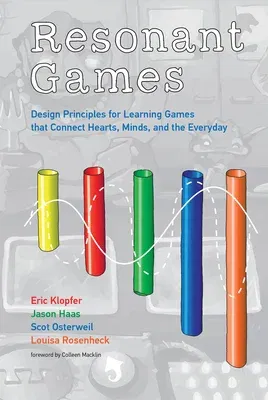Eric Klopfer
(Author)Resonant Games: Design Principles for Learning Games That Connect Hearts, Minds, and the EverydayHardcover, 17 July 2018

Qty
1
Turbo
Ships in 2 - 3 days
Only 2 left
Free Delivery
Cash on Delivery
15 Days
Free Returns
Secure Checkout

Reading Age
Ages: 18
Grade Levels
13
Part of Series
The John D. and Catherine T. MacArthur Foundation Digital Media and Learning
Part of Series
John D. and Catherine T. MacArthur Foundation Series on Digi
Print Length
272 pages
Language
English
Publisher
MIT Press
Date Published
17 Jul 2018
ISBN-10
0262037807
ISBN-13
9780262037808
Description
Product Details
Audience:
Ages: 18
Book Format:
Hardcover
Country of Origin:
US
Date Published:
17 July 2018
Dimensions:
23.37 x
15.24 x
1.78 cm
Educational Level:
Grade Levels: 13
ISBN-10:
0262037807
ISBN-13:
9780262037808
Language:
English
Location:
Cambridge
Pages:
272
Publisher:
Series:
Weight:
453.59 gm